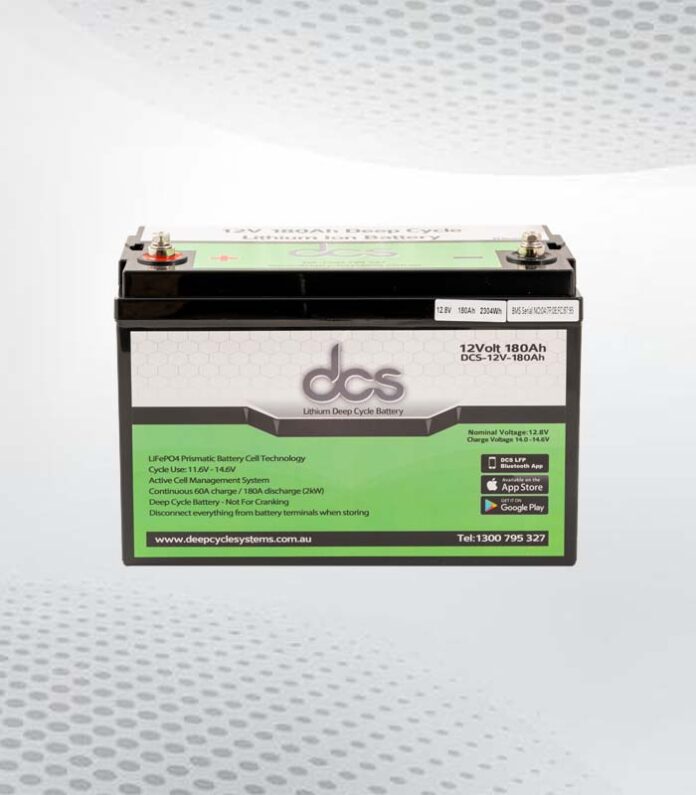Lithium batteries have become increasingly popular in recent years, and for good reason. They are the most powerful and reliable energy storage devices available today. Lithium batteries have revolutionized our modern way of life, allowing us to power everything from smartphones and laptops to electric cars. But what exactly is a lithium battery, and how does it work? In that blog post, they will explore the science of lithium batteries, looking at how they function and what makes them unique. They will look at the different types of lithium batteries, how they are made, and their advantages over other types of batteries.
What Makes Lithium battery So Unique?
Lithium batteries are the most advanced type of battery technology available today, providing superior energy density and a longer lifespan than other battery chemistries. Lithium batteries are made with various materials, including lithium cobalt oxide, iron phosphate, and manganese oxide. Combining these materials creates a lithium battery that can store more energy in a smaller package and last much longer than traditional batteries.
What Is Lithium Ion Battery?
Lithium ion battery is rechargeable power sources with high energy density, meaning they can store energy in a small package. They come in many forms and can use in everything from cars to cell phones. Lithium batteries comprise a positive cathode material, typically lithium cobalt oxide or lithium iron phosphate, a separator, an electrolyte, and a negative anode, typically graphite. When a device is plugged in and charged, lithium ions travel from the opposing side to the positive side of the battery, creating an electric current. When the device is unplugged, the process is reversed, allowing the device to draw power from the battery. The lithium-ion battery is the most common type (Li-ion).
 Lithium Ion Battery Require Very Little Maintenance
Lithium Ion Battery Require Very Little Maintenance
Unlike lead-acid batteries, they do not need to be periodically charged or discharged, and they do not emit any dangerous gasses. Lithium ion battery is also much less likely to experience damage from deep discharges, and their performance will remain consistent over time. In short, lithium batteries are popular due to their high energy density, long life span, fast charging capabilities, and affordability. They offer device makers an excellent option for powering their products. As technology continues to improve, we can expect to see them being used in an even wider variety of applications.
Lithium Batteries Are Rechargeable Batteries That Use Lithium Ions To Power Their Cells
When the battery is charging, the lithium ions move from the anode to the cathode and back again when discharging. During charging and discharging, energy is stored in the battery. The chemical reaction inside a lithium-battery is known as a redox reaction, which occurs when electrons are transferred between two substances. The electrons flow from the anode to the cathode, creating a current and releasing energy as they do so.
Lithium Batteries Come In Many Shapes And Sizes, But All Work On The Same Principle
Inside each storm are three main components: the anode, the cathode, and the electrolyte. The anode is usually made of graphite, while the cathode is made of metal oxide. Between these two components lies the electrolyte, which allows the lithium ions to move freely between the anode and cathode. An electrical circuit is formed when a device is plugged into a lithium-battery, allowing electricity to flow through it. The lithium ions then move from the anode to the cathode, creating a current and storing energy as they do so. This energy can then use to power your device.
One Of The Primary Benefits Of Lithium Batteries Is Their Higher Energy Density
It means that more energy can store in the same size battery, which makes them ideal for powering devices that require a lot of energy in a small space. For example, electric cars require a lot of energy to run, but a relatively small lithium-battery can power them.
Lithium Batteries Also Have A Longer Lifespan
With proper care, lithium batteries can last up to 10 times longer than other types of batteries. It is because they don’t suffer from the same memory effects that other batteries experience, meaning they can retain their charge for extended periods.
Lithium Batteries Are Also More Environmentally Friendly Than Other Battery Chemistries
The materials used in lithium batteries are non-toxic and non-polluting, so they won’t create any hazardous waste when they reach the end of their life. It makes them an ideal choice for reducing their environmental impact. Lithium batteries are exceptional because they offer superior energy density, a longer lifespan, and an environmentally friendly design. They are the perfect choice for powering all sorts of devices, from electric cars to medical implants.
Why Are Lithium Batteries Used In So Many Devices?
Lithium batteries are the most widely used, powering everything from smartphones to electric vehicles. It is due to their high energy density, meaning they store much energy for their size and weight. They also last longer than traditional lead-acid or nickel-metal hydride batteries and can withstand deep discharge cycles with minimal damage. Additionally, they are capable of fast charging, meaning they can charge up quickly and be ready to go again soon.
The Versatility Of Lithium Batteries Also Makes Them Attractive To Devise Manufacturers
They can easily customize and tailor to suit the needs of a particular device, allowing for things like higher power output or longer battery life. The ability to optimize their performance makes them an excellent choice for all sorts of applications, from consumer electronics to industrial machinery. Finally, lithium batteries have steadily decreased over the years, making them an increasingly affordable option. It makes them even more attractive to devise makers, who can now use lithium batteries in their products without worrying about increased costs.
What Are The Benefits Of Using Lifepo4 Lithium Batteries?
Lithium-ion phosphate (LiFePO4) batteries have become increasingly popular due to their numerous advantages. LiFePO4 batteries offer high energy density, low self-discharge rates, low maintenance requirements, and long cycle life. These benefits make them an attractive option for a variety of applications. One of the most significant benefits of LiFePO4 batteries is their excellent energy density. LiFePO4 cells typically have about twice the energy density of lead-acid batteries, meaning you can get more power from a smaller package. It implies that LiFePO4 batteries are ideal for powering smaller devices or those that require a large amount of energy.
Another Great Benefit Of Lifepo4 Batteries Is Their Low Self-Discharge Rate
Lead-acid batteries lose charge over time, even when not in use, which can lead to performance issues or shorter lifespans. LiFePO4 batteries retain their control for extended periods, even when not in use, reducing maintenance needs and allowing them to be used more efficiently.
Lifepo4 Batteries Have An Exceptionally Long Cycle Life
In general, LiFePO4 batteries can withstand up to 2000 charge cycles before they start to lose capacity, while lead-acid batteries can only withstand around 500 cycles. It makes them ideal for applications where the battery is used repeatedly over a long period of time. In summary, LiFePO4 batteries offer a range of benefits over traditional lead-acid batteries, including high energy density, low self-discharge rates, low maintenance requirements, and long cycle life. These benefits make them an attractive choice for a wide variety of applications.
Conclusion
Lithium batteries are an essential part of many modern devices and technologies. They offer superior performance and long life cycles and are safer than other battery types. They are also more efficient and cost-effective, making them ideal for a variety of applications. Lithium-ion batteries, in particular, have revolutionized the way we use electronics and have become the go-to power source for many of our favourite gadgets and tools. Although they do have some drawbacks, the benefits they offer far outweigh any potential issues. With advances in technology and materials, lithium batteries continue to get better, so we can look forward to even more powerful and reliable products in the future.


